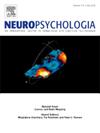解开睡眠在情绪处理中的作用
IF 2
3区 心理学
Q3 BEHAVIORAL SCIENCES
引用次数: 0
摘要
睡眠在情绪处理中起着至关重要的作用,睡眠中断会导致情绪失调,增加患精神疾病的风险。本文综述了睡眠与情绪处理的三个关键方面:情绪反应、认知情绪调节和情绪惯性之间的关系。有证据表明,睡眠不足会增强情绪反应,削弱适应性调节情绪的能力,并随着时间的推移增加负面情绪的持久性。神经生物学的发现强调了前额叶边缘回路在所有这些过程中的作用,睡眠不足会损害对情绪反应自上而下的调节控制。此外,快速眼动睡眠和慢波睡眠似乎在恢复情绪平衡方面发挥着不同的作用。这篇综述的发现强调了睡眠障碍引起情绪失调的多方面途径,随着时间的推移,增加了患精神疾病的脆弱性。本文章由计算机程序翻译,如有差异,请以英文原文为准。
Disentangling Sleep's Role in Emotion processing
Sleep plays a crucial role in emotion processing, with sleep disruptions contributing to emotion dysregulation and increased risk of mental illness. This review examines the relationship between sleep and three key aspects of emotion processing: emotional reactivity, cognitive emotion regulation, and emotional inertia. Evidence suggests that sleep deprivation heightens emotional reactivity, weakens the ability to regulate emotions adaptively, and increases the persistence of negative emotions over time. Neurobiological findings highlight the role of prefrontal-limbic circuitry in all of these processes, with sleep loss impairing top-down regulatory control over emotional responses. Furthermore, rapid eye movement sleep and slow-wave sleep appear to play distinct roles in restoring emotional balance. The findings from this review highlight the multifaceted pathways through which sleep disturbance gives rise to emotion dysregulation and, over time, increases vulnerability to mental illness.
求助全文
通过发布文献求助,成功后即可免费获取论文全文。
去求助
来源期刊

Neuropsychologia
医学-行为科学
CiteScore
5.10
自引率
3.80%
发文量
228
审稿时长
4 months
期刊介绍:
Neuropsychologia is an international interdisciplinary journal devoted to experimental and theoretical contributions that advance understanding of human cognition and behavior from a neuroscience perspective. The journal will consider for publication studies that link brain function with cognitive processes, including attention and awareness, action and motor control, executive functions and cognitive control, memory, language, and emotion and social cognition.
 求助内容:
求助内容: 应助结果提醒方式:
应助结果提醒方式:


